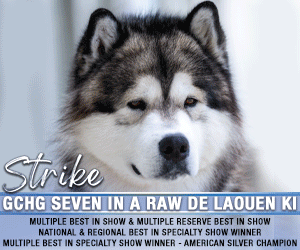Successful Clinical Trial Added Years to Dog’s Life
 Jack the Shih Tzu was 7 years old when he traveled from Ontario, Canada to the UC Davis veterinary hospital in 2015. Given a cancer diagnosis with only a few months to live and with limited immediate treatment options, Jack’s family started a frantic search for help elsewhere. The search was a quick one, though, as one of the first items that appeared in their online hunt was a first-of-its-kind clinical trial at UC Davis to treat his exact condition.
Jack the Shih Tzu was 7 years old when he traveled from Ontario, Canada to the UC Davis veterinary hospital in 2015. Given a cancer diagnosis with only a few months to live and with limited immediate treatment options, Jack’s family started a frantic search for help elsewhere. The search was a quick one, though, as one of the first items that appeared in their online hunt was a first-of-its-kind clinical trial at UC Davis to treat his exact condition.
Jack was diagnosed with nasal adenocarcinoma, a cancer that caused a large tumor to form in his nasal passage, making it difficult to breathe. The extent and location of the tumor suggested that even radiation therapy—the gold standard of care for the condition—could not make a significant impact by itself. The lack of local treatment options in their remote area forced their veterinarian to not be able to offer much hope, setting Jack’s life expectancy at three to five months.
“It was an absolutely devastating time for our entire family,” said Jack’s owner Angela Bettiol. “We were in complete shock for the remainder of that day and then went in to full ‘survival mode’ the next morning, researching treatment options and similar cases.”
In 2013, Dr. Michele Steffey, a veterinary surgeon with UC Davis’ Soft Tissue Surgery Service, started a clinical trial to test the efficacy of treating canine nasal tumors with cryoablation, a process of killing the tumor cells by freezing them. After publicizing the success of an early case, dog owners across North America sought to enroll in the trial.
“So, we contacted UC Davis right away,” said Bettiol. “We were told that a consultation would be available immediately. Dr. Steffey actually reached out that day via email.”
With the wheels quickly in motion, Bettiol and her family packed up Jack and boarded the next flight to California.
Once in Dr. Steffey’s care, Jack received a CT scan to better assess the situation. Comparing the scan to a previous one taken in Canada, Dr. Steffey noticed the tumor had grown since the initial diagnosis. The growth now involved more of the bony division between Jack’s nasal cavity and his brain. This finding increased the likelihood of complications from the impending procedure and made it more difficult to predict the outcome of the treatment. Due to this, Dr. Steffey’s treatment plan was not able to be as aggressive with cryoablation alone in order to protect his brain, and a new combination of cryoablation followed by radiation therapy was considered.
Regardless, Jack tolerated the ablation treatment well, and he returned home to Canada. His recheck appointment at UC Davis a month later was positive, but as expected from the treatment planning, while the cryoablation was able to eliminate most of Jack’s tumor, there were still low volume amounts of the disease present. Dr. Steffey recommended follow-up radiation therapy to fight the remaining elements of the tumor. Thankfully, Bettiol was able to find a veterinary facility providing radiation therapy about an hour from their home in Ontario that was able to help, avoiding a lengthier third trip to California.
Jack was one of the first 20 dogs ever treated with cryoablation for nasal adenocarcinoma and the first ever treated with the combination of cryoablation and follow-up radiation. Though never before documented in veterinary medicine, the treatments succeeded as his veterinarians had hoped, and cleared the remaining elements of the disease.
“Upon returning home from our second trip to California, Jack almost immediately began two weeks of radiation here in Ontario,” said Bettiol. “The radiation resulted in a change of hair color, from white to black, which later returned to normal. I told Dr. Steffey that I didn’t care if it grew back pink, as long as we still had him in our lives.”
Jack survived many years past his initial diagnosis of just a few months to live. In January 2020, at the age of 12, he crossed the rainbow bridge – but without recurrence of his nasal cancer.
“Unfortunately, earlier this year, Jack grew tired in his old age and peacefully passed away,” Bettiol recently shared. “If it weren’t for Dr. Steffey and the staff at the UC Davis veterinary hospital, we wouldn’t have been able to share the five additional years with him. It is such a blessing to know that Jack’s participation in the clinical trial and us sharing his story has the potential to change so many lives, as he truly emerged as the ‘best case scenario.’ Although we miss him dearly, we can smile knowing that another family’s grief may turn to hope with this procedure as a promising option.”
While the clinical trial has concluded, Dr. Steffey continues to offer ablation treatments not just for nasal cancer, but also bone cancer and other internal cancers.
Short URL: https://caninechronicle.com/?p=185869
Comments are closed












